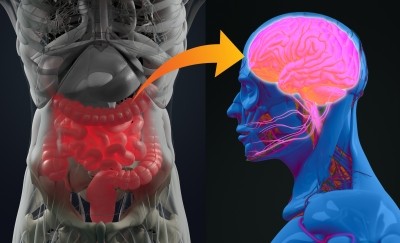Omega-3 oil’s anti-inflammatory effects may aid in addressing depression, study says

Writing in Molecular Psychiatry, the UK-based research team explore mechanisms in the body, which omega-3 fatty acids might work to reduce inflammation or depression, providing a springboard for more focused research.
“For some time we have known that omega-3 PUFA can induce anti-depressant and anti-inflammatory effects but, without further understanding of how this happens in the human brain, it has been difficult to develop treatments,” says Dr Alessandra Borsini, lead study author and Senior Postdoctoral Neuroscientist at King's College London.
“Our study has helped shine a light on the molecular mechanisms involved in this relationship which can inform the development of potential new treatments for depression using omega-3 polyunsaturated fatty acids (PUFA)."
Manchester University collaboration
The study, which involved colleagues from the University of Manchester, focused on omega-3 fatty acid metabolites called lipid mediators and their ability to protect the brain from inflammation’s harmful effects.
Using a validated in vitro human cell model that uses hippocampus cells, the team first treated these cells with the omega-3 fatty acids, EPA (eicosapentaenoic acid) and DHA (docosahexaenoic acid).
The cells were then exposed to chemical messengers involved in inflammation, prevented increased cell death and decreased production of new neurones.
Further work found these effects were overseen by lipid mediators produced by EPA and DHA, called hydroxyeicosapentaenoic acid (HEPE), hydroxydocosahexaenoic acid (HDHA), epoxyeicosatetraenoic acid (EpETE) and epoxydocosapentaenoic acid (EpDPA).
The team then introduced an enzyme inhibitor that increased the availability of EpETE and EpDPA, which could form the basis of a therapy to tackle depression.
“The lipid mediators that our research identified are broken down in the body relatively quickly, which means they may only be available for a relatively short time,” explains Professor Anna Nicolaou, professor of Biological Chemistry at the Faculty of Medical and Human Sciences, The University of Manchester.
“By testing the effect of inhibitors of the enzymes involved in the metabolism of omega-3 PUFA we showed that we can greatly improve how long they can have an effect in the body and ultimately, increase their efficacy.
“This is very important for the development of new treatments and means that patients could be given higher doses of EPA and DHA together with these enzyme inhibitors to increase the amount of these important compounds in their blood over time."
‘Internationally respected team’
Expert reaction to the findings was generally positive with Dr Eric Ruhé, Psychiatrist-epidemiologist at the Radboud University Medical Center in the Netherlands, stating, “If next steps are taken and turn out positive, this finding could be an important contribution to pre-stratify depressed patients to receive targeted mechanistically based treatments instead of the current trial-and-change approach.”
Dr Michael Bloomfield, Excellence Fellow, Head of Translational Psychiatry Research Group and Consultant Psychiatrist at UCL, added, “This is fascinating research conducted by an internationally respected team of scientists.
“This new study sheds light on potential mechanisms that may underlie response to omega oils. This is important because understanding these mechanisms could lead to new treatment targets and might explain why some people seem to get better with omega oils and others do not.
“That said, more research is needed into omega oils and their potential mechanisms of action.”
Further research needed
Senior author of the paper, Professor Carmine Pariante, National Institute of Health Research (NIHR) Maudsley BRC Affective Disorders Interface with Medicine Theme Lead said, "By identifying and measuring the exact lipid mediators that are involved, identifying the enzyme that prolongs their effects and finding the same lipid mediators in depressed patients treated with omega-3 PUFA and demonstrating improvements in symptoms, we have provided vital information to help shape clinical trials for future therapeutic approaches with omega-3 fatty acids.
"It is important to highlight that our research has not shown that by simply increasing omega-3 fatty acids in our diets or through taking nutritional supplements we can reduce inflammation or depression.
“The mechanisms behind the associations between depression and omega-3 PUFA are complicated and require further research and clinical trials to fully understand how they work and inform future therapeutic approaches."
Source: Nature Molecular Psychiatry
Published online: doi.org/10.1038/s41380-021-01160-8
“Omega-3 polyunsaturated fatty acids protect against inflammation through production of LOX and CYP450 lipid mediators: relevance for major depression and for human hippocampal neurogenesis.”
Authors: Borsini, A et al.















